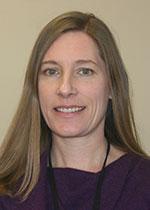Amy Bauer MD, MS attended medical school at the University of California, San Francisco and University of California, Berkeley. While getting her medical degree, she found inspiration in her interest in public health and health care and applied that interest to psychiatry. During her residency at Massachusetts General Hospital, she spent elective time in South Australia where she discovered a need for psychiatrists to support local providers in underserved and isolated locations. Shecompleted a clinical fellowship in Psychosomatic Medicine and research training in Health Care Policy and Primary Care Psychiatry at the University of Washington.
Her interests include primary care psychiatry, mobile health, health disparities, and health services research. She has worked as a psychiatric consultant for clinics in the Behavioral Health Integration Program (BHIP) and state-wide Mental Health Integration Program (MHIP). She says that her work is centered on people and relationships; not just patients, but also team relationships and the community of committed people who want to improve and practice care in new ways. Five years from now, Dr. Bauer hopes that collaborative care is continuing to better use the technological tools we have to improve the way that care is delivered.
